recordings
Latest
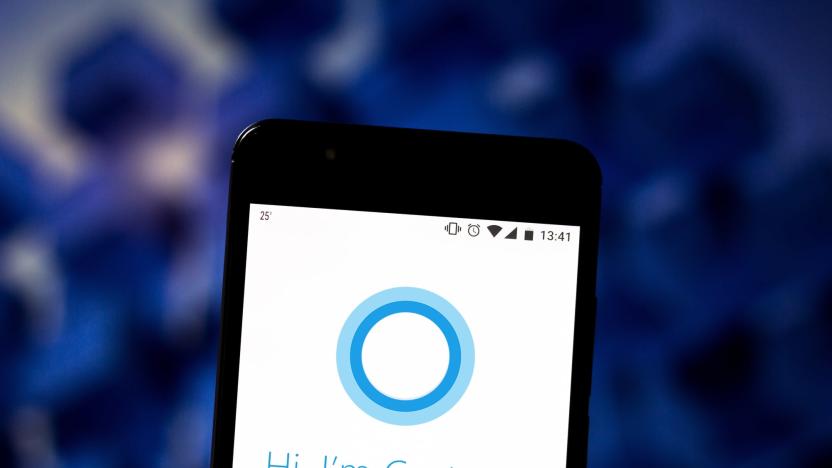
Microsoft contractors reportedly reviewed Cortana clips on insecure PCs
New details have emerged about how Microsoft operated its Cortana and Skype grading programs in the past. Building on a Vice report from last summer, The Guardian says that for several years, the tech giant contracted a company in China that used almost "no security measures" to protect the recordings.
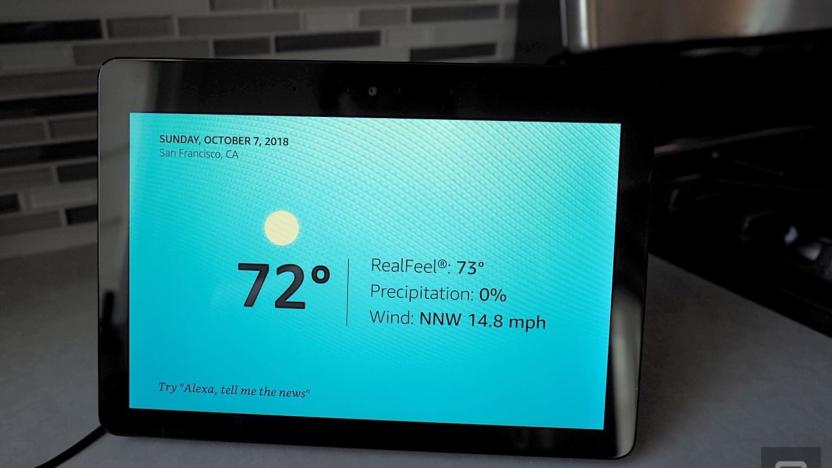
Amazon adds Auto Delete for Alexa following privacy concerns
As part of its hardware event, Amazon just unveiled a new Auto Delete feature for Alexa that will automatically erase video recordings after three or 18 months. Users will be able to manage their preferences in Amazon's Privacy Hub.

Apple will still review Siri recordings, but only if you opt in
Earlier this month, Apple suspended the program which used contractors to review clips of audio gathered by Siri. Users were up in arms after they learned that the contractors sometimes heard sensitive information, like medical records, personal interactions and criminal activity. Today, Apple issued an apology and promised changes.

Apple fires hundreds of contractors hired to listen to Siri recordings
In the wake of revelations that Apple has people listening in to some Siri requests, Apple has fired more than 300 contractors in Cork, Ireland. As The Guardian reports those contractors were hired as part of a "grading" program that reviewed audio recorded by Siri. News broke last month that those contractors often heard sensitive information -- like medical info, criminal activity and "sexual encounters." After temporarily suspending the program, Apple has reportedly decided to terminate it.
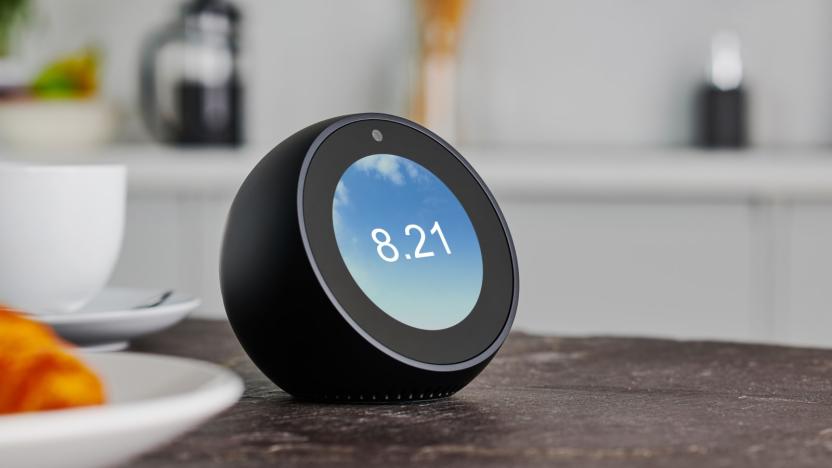
Amazon's new opt-out keeps people from 'reviewing' your Alexa recordings
Over the last few days Google and Apple have begun to address their use of real people that listen in on recordings to help improve voice AI like Assistant and Siri. For Amazon, these revelations surfaced months ago, and now it's added a toggle that people can use to opt out of potentially having their voice recordings and/or recorded message transcripts "manually reviewed" by people. While Amazon has said that only a small sample of recordings are manually reviewed, people may not want to have someone listening in on what they were saying just because their speaker or remote thought it heard the wake word.
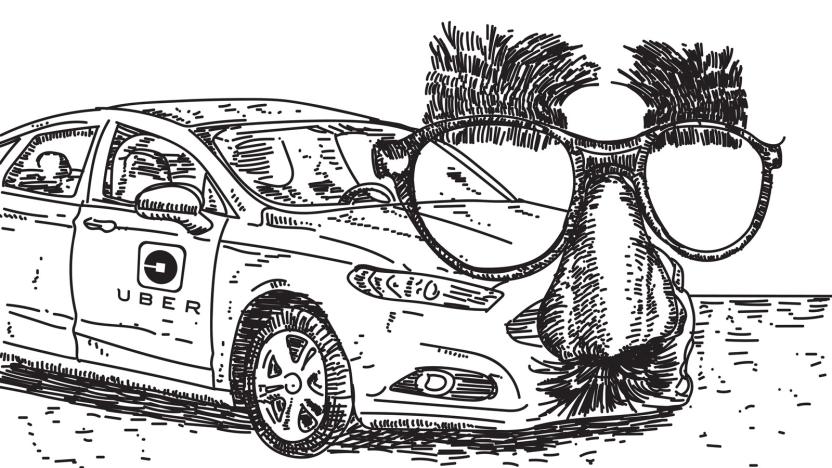
When your Uber driver is a spy
Like other migrating beasts, hackers travel huge distances for feeding, breeding, and breaking things every summer -- at Defcon in Las Vegas. The way they move about the city is driven primarily by the availability of free booze at corporate parties or the convenience of air-conditioned infosec habitats; the heat makes them torpid. As such, everyone takes taxis, Ubers, and Lyfts everywhere, day and night.
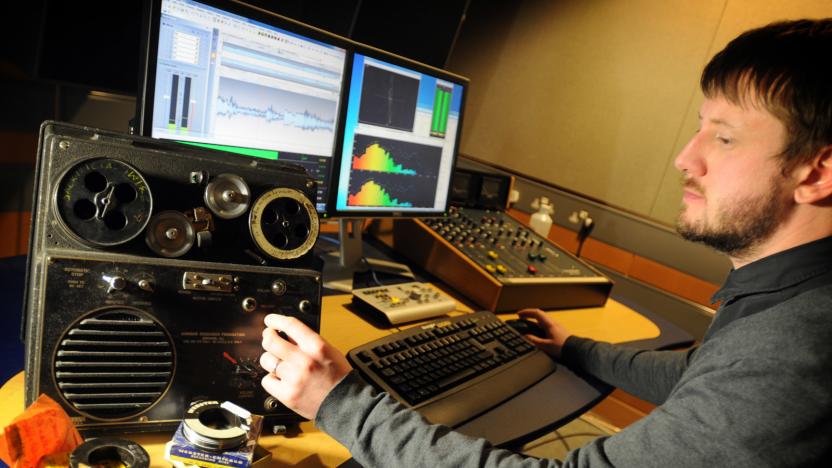
British Library exhibit to highlight the sounds it’s fighting to save
Last year, the British Library began the "Save our Sounds" project, with the aim of accelerating the digitisation of millions upon millions of lost audio recordings held in its vast archive. The collection includes many rare and previously unreleased recordings of everything from speeches and music to wildlife, street sounds and pirate radio broadcasts. In some respects, it's a race against the clock. Time is taking its toll on ancient formats like the wax cylinder, for example, and the equipment needed to play some formats is extremely hard to come by. There's much to be done, but next month the British Library is celebrating achievements thus far with a free exhibition that "will explore how sound has shaped and influenced our lives since the phonograph was invented in 1877."

Sky Q smartphone app lets you take your recordings with you
One of the clever things about the Sky Q box is that it can sync recordings to devices throughout your home. The company has offered a tablet app since launch, but if you wanted to transfer TV shows and movies over to your smartphone, you were out of luck. Thankfully, that changes today with the launch of a dedicated mobile app that lets you stream live and on-demand programmes but also remotely set your Sky Q box to record episodes while you're out and about.

The British Library is fighting to save endangered sounds
For most of us, thinking about museums and archives will conjure up images of physical relics; faded books, paintings and trinkets discovered beneath the soil. But now, the British Library is fighting to preserve something more elusive: sound. With £9.5 million in fresh Lottery funding, it hopes to digitise and release 500,000 rare and at-risk recordings over the next five years. The challenge is that some audio snippets are currently held on old formats, such as wax cylinders and magnetic tape. They're slowly decaying to a point of irreparability, and the equipment required to play them is becoming harder to source. The British Library estimates that 1 million UK sound collections could be lost in the next 15 years, so in January it started a "Save our Sounds" campaign to preserve them.

Auto-tune this! Research team restores 134 year-old audio recording (update: audio links)
A Berkeley Lab research team in California has successfully restored a 134 year-old audio recording. The historic audio was originally captured in 1878 by a phonograph designed by Thomas Edison, which consisted of a cylinder wrapped in tinfoil that used a stylus to record sound on the surface of the material. Due to the foil's frailty, recordings were only good for a few playbacks on Edison's phonograph. To restore this century-old mixtape, the research team created a 3D model of the grooves in the foil and ran it through a software that recreated the original audio track. As for the great mystery of the recording's contents, it's a 23-second horn instrumental followed by what is believed to be political writer Thomas Mason reciting Mary Had a Little Lamb and Old Mother Hubbard. Using modern technology for playback, the restored recording is set to have a listening party this week at the Museum of Innovation and Science in New York. Update: For audio samples from the project, hit the coverage link below. [Image courtesy of the Library of Congress, Brady-Handy Photograph Collection]

DirecTV Nomad is ready to launch, transcodes DVRed shows for mobile viewing
It was just about a year ago that we initially heard rumors of the DirecTV Nomad, and after some lengthy intrigue it is finally ready to launch. While its product page on the company's website isn't live yet, the folks at DBSTalk have been testing it and already posted one of their detailed walkthroughs, revealing the box as a TiVoToGo-style transcoder. Plug the $149 box into your whole home DVR network and it snags recorded programs and prepares them for viewing on other devices. Currently that list includes PCs with 1.2GHz processors or higher (no Atom powered netbooks invited to this party) and iOS devices, although an app for Android is apparently on the way. Compared to Dish Network's Sling-powered TV Everywhere streaming approach, DirecTV's sideloading has the distinct benefit of offline viewing, but without access to live TV on the go. The iPhone app is already available in iTunes and some forum posters report they've already been able to preorder the unit, but check DBSTalk for their breakdown and the device's manual in PDF form before making a decision on your placeshifting future.

ReplayTV guide data comes to an end July 31st
DirecTV has carried on the "resurrection" of ReplayTV for a lot longer than we thought it would since purchasing the ancient DVR brand back in '07, but everything comes to an end next month. Zatz Not Funny points out the website has been updated to inform users EPG data will cease July 31st, leaving any stragglers to either find their own sources or to schedule recordings manually. If any users are thinking this is the time to switch (and not, say, anytime in the last decade) we'd suggest SageTV as an option but, you know...

Sony and Library of Congress launch streaming National Jukebox, ready to DJ at your local speakeasy
Who's better, Sammy Hagar or The Great Caruso? We know you have every track the Red Rocker ever laid down, but if you haven't upgraded your gramophones of the great Italian tenor, today is the first day of the rest of your life. The Library of Congress, working with Sony, now streams a collection of 10,000 historical recordings, including Caruso and other pre-1925 greats. This "National Jukebox" is a bit of a hodge-podge, including everything from early jazz to poetry to yodeling, but digging through the archive is half the fun. But while access to this material is great for sound preservationists, commenters on BoingBoing point out that it's not truly public domain work: thanks to our spaghetti-tangle of copyright arcana, Sony still owns the rights. It's allowing users to stream but not download, and technically could revoke its gratis license at any time. So get your Caruso fix while you can.

Library of Congress receives 200,000 vintage master recordings from Universal, will stream them online
The US Library of Congress hasn't been shy about embracing the modern age of digital media, though in this case it's having to deal with some decidedly lower-fi data storage. Universal Music Group has announced it's donating over 200,000 master recordings of early 20th century music to the Library, which will be cataloged and digitized -- for future safekeeping and in order to be streamed online starting in the spring. It doesn't seem, however, that the intellectual property rights will be passing with these recordings, as the press release states this agreement continues the Library's "unprecedented authority to stream commercially owned sound recordings online." Either way, it's good to know that the original copies of works by the likes of Louis Armstrong, Billy Holiday and Ella Fitzgerald will reside in the hands of an organization dedicated to their preservation. Full press release follows after the break.

Report warns that Copyright Act threatens recorded sound preservation
A new report issued by the Library of Congress entitled The State of Recorded Sound Preservation in the United States: A National Legacy at Risk in the Digital Age, has some sobering findings on the state of historic audio, whether on vinyl, wax cylinders, or optical disc: namely, that it's "at risk." What does that mean, exactly? It seems that a combination of antiquated copyright laws and a wide array of digital formats means that libraries are often unable to back up its holdings (even when it is legal to do so). "Were the law strictly enforced," the report explains, "it would brand virtually all audio preservation as illegal." It goes on to detail steps that could be taken to fix these problems, were lawmakers not too busy grandstanding and cozying up to special interest groups, including: reformation of the Copyright Act, decriminalizing the use of orphan works for which no rights holder can be established, establish a legal way for third parties to reissue long out-of-print "abandoned recordings," and establishing legal ways for libraries to more easily make audio copies and share files.

GE's early 20th century pallophotophone recorder decoded, Thomas Edison speech uncovered
In 1922, General Electric developed a machine for recording audio called the pallophotophone, which recorded sound on 35mm film. It is thought to be the world's first multitrack recording system (and it predated magnetic tape multitrack recording by about 20 years). The device never really made it to the big time, however, and until very recently, almost no one bothered to think about it anymore. Then Chris Hunter, curator of the Schenectady Museum in Schenectady, New York discovered 12 canisters of the film in his archives. Though none of GE's original pallophotophone machines seem to have survived, current GE engineer Russ DeMuth became involved in the project, and spent two years building a modern pallophotophone based on GE's original sketches, out of modern materials, dubbing the new one the Gizmotron. The modern device plays the original films just fine, and included in their canisters were a couple of real gems -- what's thought to be the earliest recording of the NBC chimes, and a speech given by Thomas Edison commemorating the 50th anniversary of the invention of the incandescent lightbulb. A photo of the modern Gizmotron and its inventors is below -- hit up the source for the full story and hear the Edison audio.

U-Verse updates Total Home DVR, Yellow Pages app features
It looks like U-verse customers won't be left out of all the set-top box upgrade madness going around lately, as AT&T has announced two upgrades on the way for the services. Total Home DVR users will get more ways to customize their recording settings with a Series Priority option to help resolve any programming conflicts four tuners can't take care of, a Keep At Most feature to specify how many episodes of a particular program to keep and Series Delete to remove an entire series with one stroke. The Yellow Pages TV App has also been upgraded, beyond just letting viewers search local business info on their TV, there's now a "Make a Call" button to automatically ring the business from their home or mobile phone. Still waiting for mobile program downloads? So are we.

RIAA demanding XM-Sirius pay higher royalty rates
In the unceasing feud between the RIAA and satellite radio, the agency has rekindled the fire by encouraging the FCC to "require the merged companies to pay higher royalty rates to the record industry." Reportedly, the RIAA argued that the firms were "no longer new, struggling companies that could get away with paying below-market rates," and further salted the wound by insisting that the FCC "make clear that its approval of a merger was conditioned upon the continued protection of sound recordings from unlawful infringement." Of course, a number of senators have already voiced their concern for more limitations on satellite radio streams, but unsurprisingly, it seems like the RIAA wants these lofty wishes to become reality (and in a hurry).









